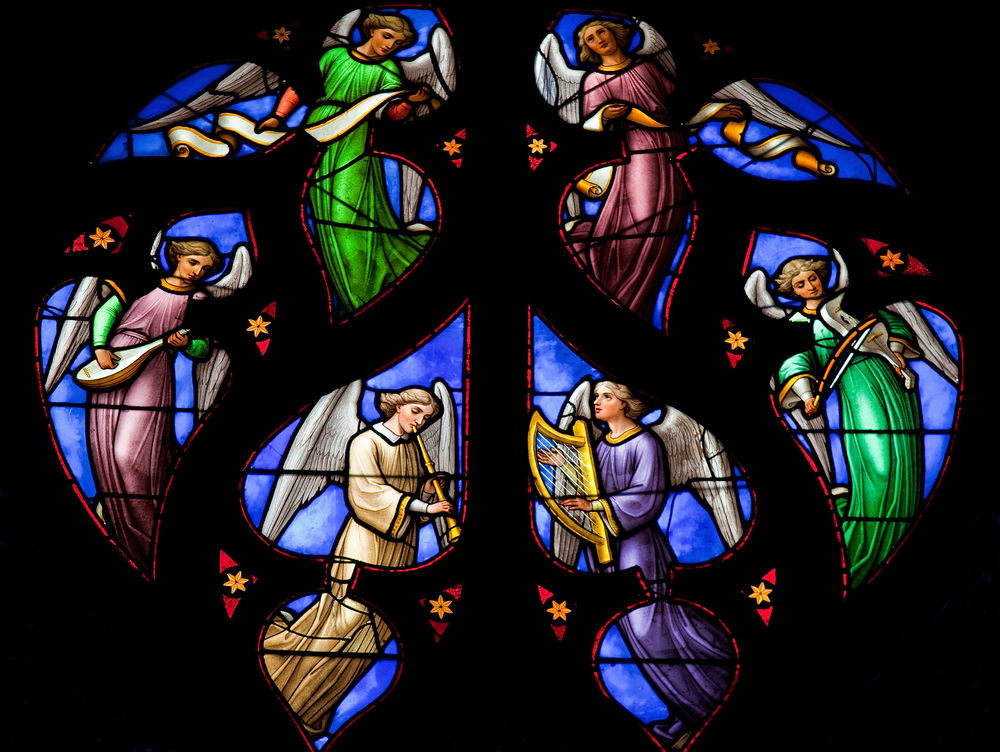Most of us would agree that music enhances everything we do in life. It lifts our celebrations, carries our sorrows, energizes our weariness, gives voice to our joy and quiets our confusions. Music, in one way or another, permeates our entire life.
Most Catholics probably think that having music at Mass is nice, too, but is not really necessary — that music enhances our ritual prayer, but is it not really important. Let’s explore that a bit, because it is not an accurate understanding of the role of music in Catholic liturgy, or of our participation in Mass.
Yes, music that simply “enhances” but is not integral to the liturgy is what happens in most parishes, and is probably the approach that many Catholics have known all their lives. We can look at that experience and be tempted to say that’s “good enough,” but “lead us not into that temptation!” We need to recognize that the path of continual reflection on our liturgy that was initiated with the Second Vatican Council and the “Constitution on the Sacred Liturgy” (1963) calls us to more than what has been in the past. It calls us to make present what we have known in the past and breathe new life into it.
The vision of that document “still has its time, presses on to fulfillment and will not disappoint!” (Habbakkuk 2:2-3) It has moved us especially into a place of more full, conscious and active participation in and through song.
All parish communities are called to this vision of a present and living liturgy. It’s a vision that is not going away. It has set us on a forever-path of conversion and renewal that brings Christ to life in each time and place. To connect with this vision, each parish community needs to regularly examine the way in which they celebrate and participate in the Mass, especially in regard to ritual song. How we do the liturgy shapes and reshapes us. How we do the liturgy is the task of all participants. It is, in fact, the work of the people.
So, why is singing at Mass so important to the ritual? The Church document “Sing to the Lord: Music in Divine Worship” (STL) starts by stating: “God has bestowed upon his people the gift of song. God dwells within each human person, in the place where music takes its source. Indeed, God, the giver of song, is present whenever his people sing his praises.” We speak of our souls as the “place” where our humanity connects with our divinity, the place where God dwells within us. It is also “the place where music takes its source.”
“Music is therefore a sign of God’s love for us and of our love for him. … Thus, it is no wonder that singing together in church expresses so well the sacramental presence of God to his people.” (STL No. 2)
“Music does what words alone cannot do. It is capable of expressing a dimension of meaning and feeling that words alone cannot convey.” (STL No. 124)
We sing at Mass so that we may enter into a holy dialogue with this “giver of song.” Thus, song is the language of the soul. It comes from God. It is the language we have been given so that we might dialogue with God, and be as one voice in that dialogue. Our song is not only an expression of God-love; it is the language we have for our participation in the very life of God.
The “Constitution on the Sacred Liturgy” (No. 112) says, “Sacred music is to be considered the more holy the more closely connected it is with the liturgical action.” “Sing to the Lord” (No. 68) says, “The ritual dimension of sacred music refers to those ways in which it is connected with the liturgical action so that it accords with the structure of the liturgy and expresses the shape of the rite.”
Song in the liturgy doesn’t just enhance our experience, it welds the community to the liturgical action. Through our song, our worship and praise, God is revealed to us. Ritual song is the integral language of the liturgy that gives voice to the mystery of God. Our ritual song gives us a way of knowing that is beyond human speech or intellect; it gives voice to a way of knowing God that cannot be known otherwise. Ritual song is the place where God and humanity are one voice, one spirit, one mystery.

